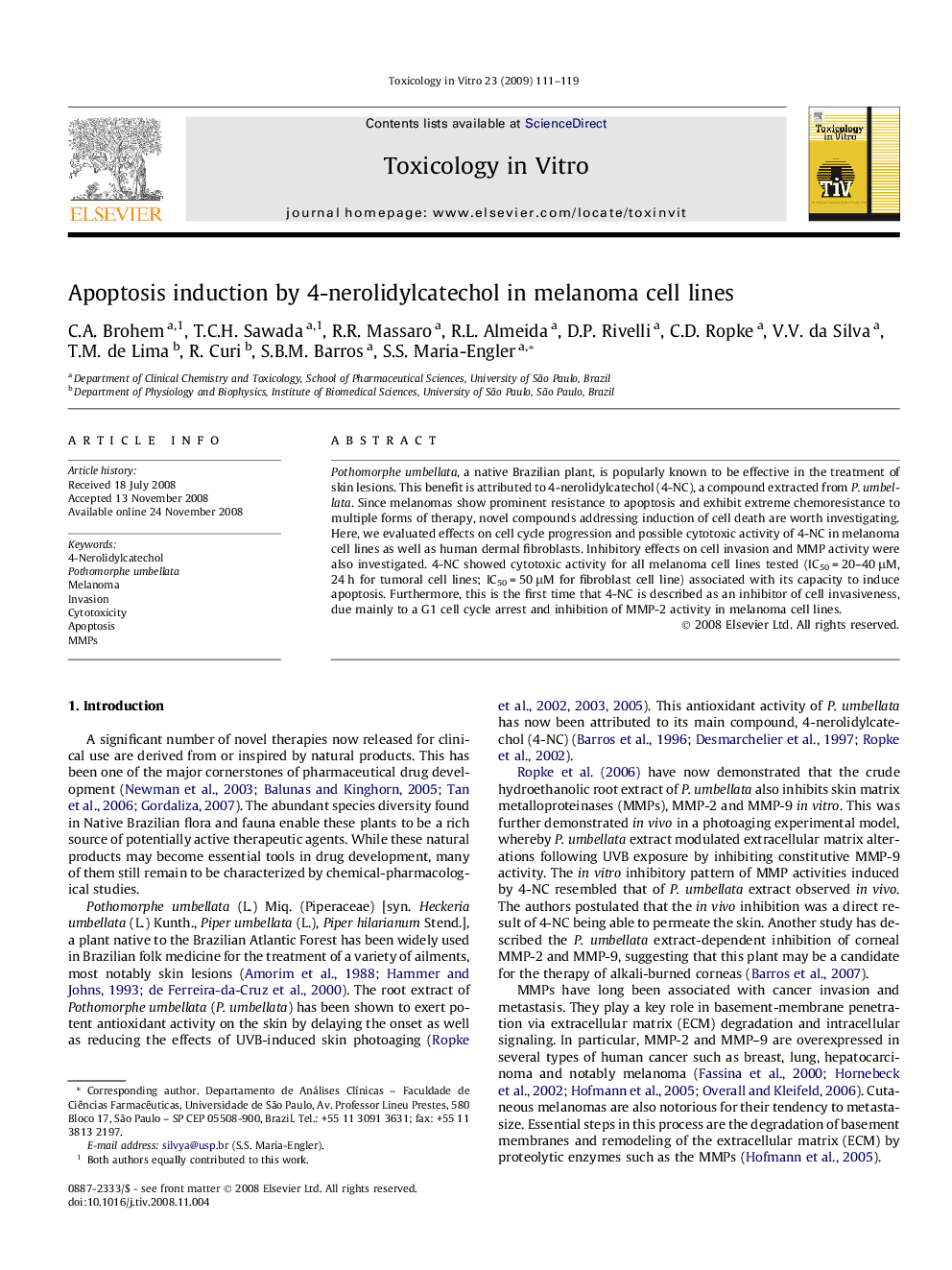| Article ID | Journal | Published Year | Pages | File Type |
|---|---|---|---|---|
| 2603275 | Toxicology in Vitro | 2009 | 9 Pages |
Pothomorphe umbellata, a native Brazilian plant, is popularly known to be effective in the treatment of skin lesions. This benefit is attributed to 4-nerolidylcatechol (4-NC), a compound extracted from P. umbellata. Since melanomas show prominent resistance to apoptosis and exhibit extreme chemoresistance to multiple forms of therapy, novel compounds addressing induction of cell death are worth investigating. Here, we evaluated effects on cell cycle progression and possible cytotoxic activity of 4-NC in melanoma cell lines as well as human dermal fibroblasts. Inhibitory effects on cell invasion and MMP activity were also investigated. 4-NC showed cytotoxic activity for all melanoma cell lines tested (IC50 = 20–40 μM, 24 h for tumoral cell lines; IC50 = 50 μM for fibroblast cell line) associated with its capacity to induce apoptosis. Furthermore, this is the first time that 4-NC is described as an inhibitor of cell invasiveness, due mainly to a G1 cell cycle arrest and inhibition of MMP-2 activity in melanoma cell lines.
